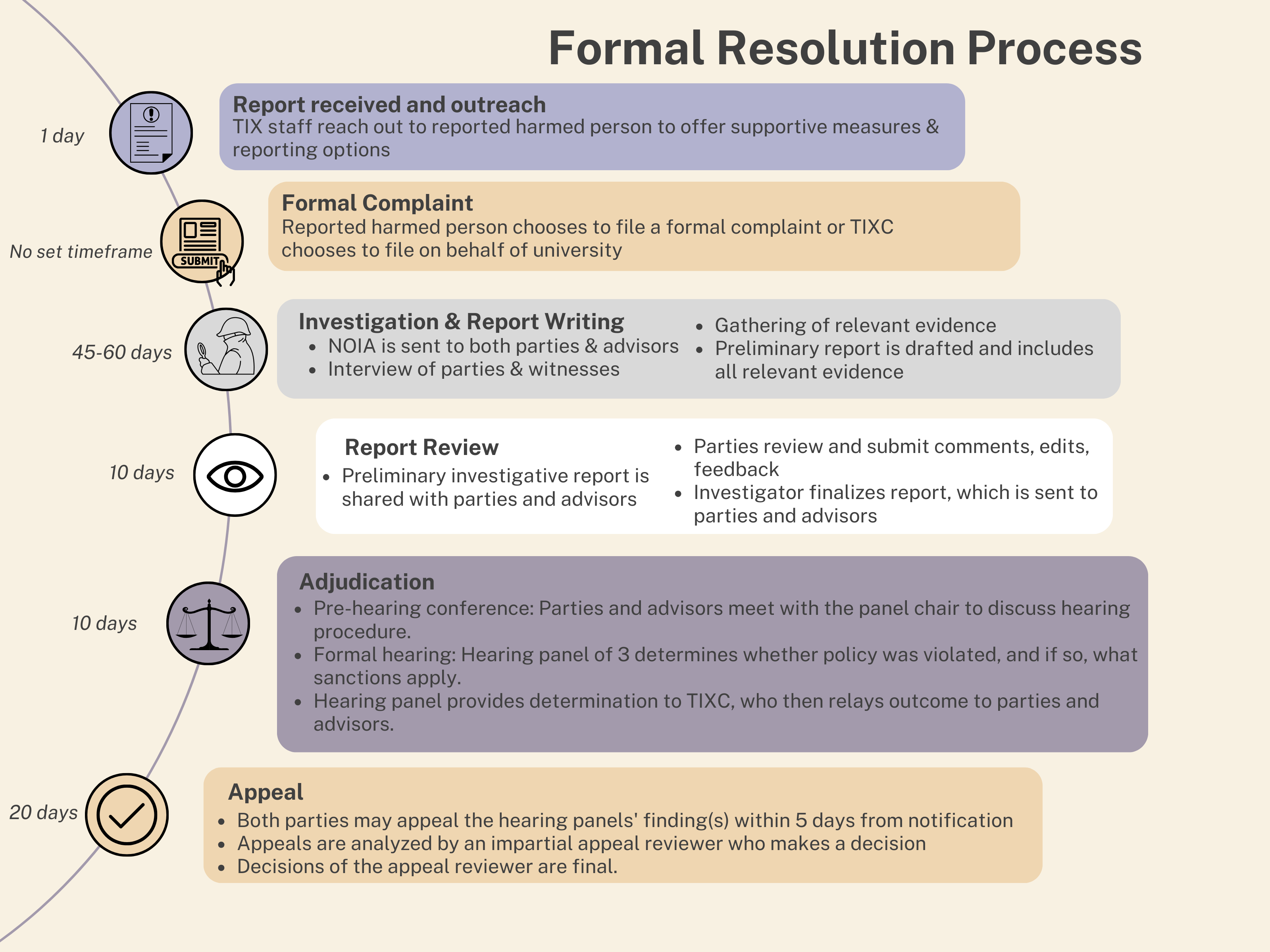Resolution Options
Formal Process | Informal Resolution
A common misconception is that all reports made to the OCR&TIX Office are investigated. Incident reports, which are mandatory or voluntary reports of incidents of power-based violence and/or sexual misconduct are not the same as formal complaints. If you are ready to do so now, you may report an incident. Learn more about resolution options in the information that follows.
Incident Report
A report to the university that something happened
- Can come from anyone
- Purpose: to provide support
- Can be accessed anytime by anyone
- Does not automatically trigger an investigation
Formal Complaint
A formal request for an official university resolution
- Person: harmed party
- Purpose: to reach a resolution
- Only available after meeting with the office to review options and processes
Formal Process
A case manager assists an individual in understanding their rights, resources, and options for resolution in an intake meeting. The option to file a formal complaint is reviewed and resolution options are discussed. If the person decides to file a formal complaint, it is analyzed by the Title IX Coordinator, the case is assigned to an OCR&TIX Investigator, and there is a two-pronged process that follows.
- Investigation: the process by which statements and evidence are gathered by parties involved (the complainant, the respondent, and witnesses, if any). This process can take 45-90 business days, and sometimes longer depending on caseload and academic year timing.
- Hearing Panel / Adjudication: after investigation is complete, there is a process by which a hearing panel of 3 individuals hears all statements and evidence at a live, virtual meeting. At the end the hearing panel determines if the respondent is “responsible” or “not responsible” for the violations alleged in your formal complaint. Hearing Panel chairs and members are typically selected from the trained Resolution Process Pool (LSU staff and faculty), or from a trained group of Administrative Law Judges
Informal Resolution
Informal Resolution is a process through which parties voluntarily engage with OCR&TIX
to discuss remedies to resolve a formal complaint. With some exceptions, parties may
bypass or pause the formal investigatory process to pursue an informal resolution,
as long as both parties agree to consider this option.
Informal resolution options are unique and tailored to each case based on the individuals
involved. They typically involve a remedies-based, non-judicial process. This is
usually a set of terms that both parties agree to and that are easily determined to
be completed. Some examples of appropriate measures may be an agreement to avoid certain
physical, social, or academic spaces or to engage in restorative work (consent training,
facilitated dialogue, or mediation).
Participation in an Informal Resolution is voluntary, and either party can request to end the Informal Resolution process at any time and commence or resume the investigation process.
If parties agree to an informal resolution, no formal complaint can be submitted on the same set of facts, and any ongoing investigation would be withdrawn.
Exceptional cases in which an informal resolution would not be appropriate:
- When there is a significant power dynamic between the complainant and respondent
- When there might be a significant threat of future harm to the complainant or community at large
